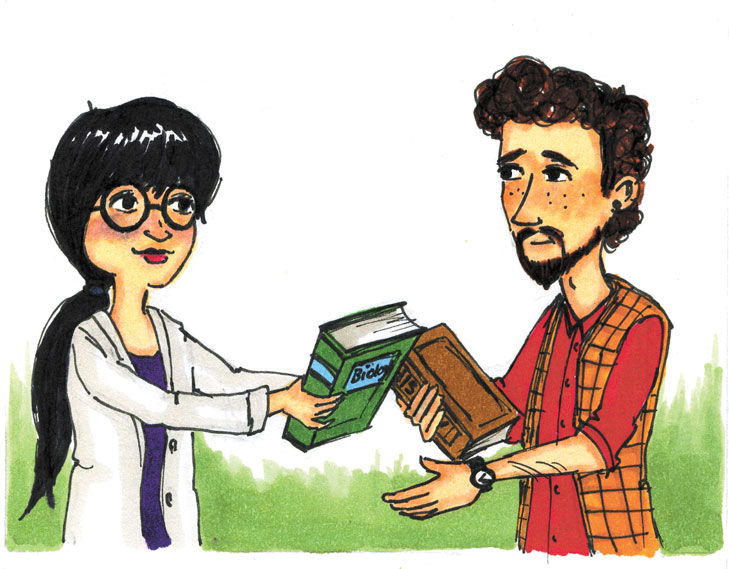
Give us this day our daily breadth
By Emilie Medland, September 4, 2014 —
There’s a problem with engineers who have no knowledge of Canadian history. A lawyer shouldn’t be speaking in court without a basic grasp on the scientific method. But we’ve become so obsessed with specialization that we only see value in educating students on topics specific to their degree program and eventual career.
University is more than a stepping-stone to a corner office. It’s more than a degree-mill. University is designed to educate us in a broad range of fields and improve our intellectual capacity. The idea that breadth requirements — required courses outside of one’s faculty — are a waste of time is fundamentally incorrect.
Breadth requirements produce better educated students. They also give students the skills they need to thrive in the working world.
Current trends in learning lean towards specific and highly detailed knowledge. This is especially true in fields like engineering and medicine. Our learning is professionally rather than academically driven. Getting in and out of university as fast as possible has become more important than what we learn.
While this approach produces students with specialized knowledge, it hampers our professional careers because it means we don’t have a breadth of diverse fields to draw from. Students will be better able to solve problems and think critically if they can draw on the knowledge of different disciplines. Workers with a larger breadth of knowledge to draw from will be more adept at working in a changing environment.
Breadth requirements in university aren’t just another irritating hoop that administration is making us jump through. A well-rounded education system produces workers that are able to adapt to changing professional environments. Breadth requirements teach us to deal with material that is both challenging and uninteresting. They teach us different methods of solving problems and enhance our understanding of our own disciplines by giving us new perspectives.
Learning in general, even if it’s just the bare minimum needed to pass a computer science option, is rarely a waste. Even classes we detest teach us diligence. Breadth requirements reflect a way of learning that stretches to encompass the complexity of our lives. Doing away with them would narrow how we see the world.
The University of Calgary is a place for nuanced and advanced learning. Most of the degrees offered are not professional ones. The responsibility of higher education is to provide students with a holistic educational experience, not to prepare them for a specific career. After university, the opportunity for this kind of education diminishes as we specialize even further in our professional careers.
No, being able to quote Shakespeare shouldn’t be the final goal of a university degree, but neither should an office job downtown.
University is supposed to teach us to be critical and engaged with the world around us. Our world connects the arts and the sciences in stunning complexity. Taking a couple classes outside of your comfort zone helps prepare us for that world.
